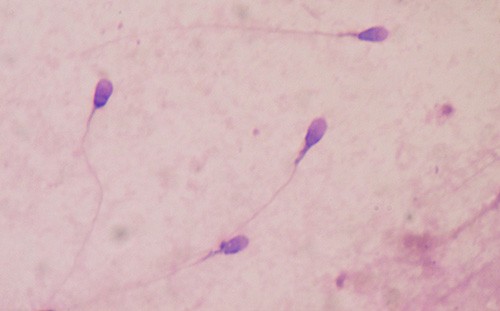Fertility Investigations
There are numerous investigations that can be done to examine the possible cause of infertility. Initially, a reproductive specialist should obtain a thorough medical history and will recommend what tests are needed. Many of these tests are expensive and may not necessarily explain the reason for infertility or even lead us to its solution. To determine the reason of infertility and to recommend the most suitable method of infertility treatment for each couple, it is necessary to conduct some of the following basic tests.
Reproductive Endocrinology
One of the basic investigations when dealing with infertility problems is the examination of specific hormones. The results of these tests along with the ultrasound scan are the tools that are used to select the proper treatment in each individual case. The main hormones that are investigated are AMH, FSH, LH, Estradiol, Prolactin.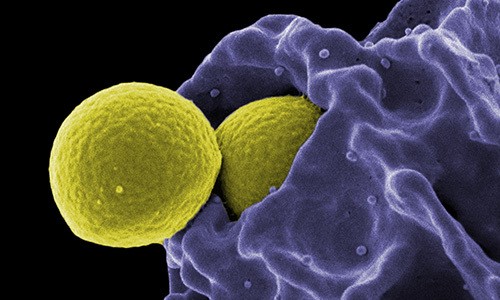
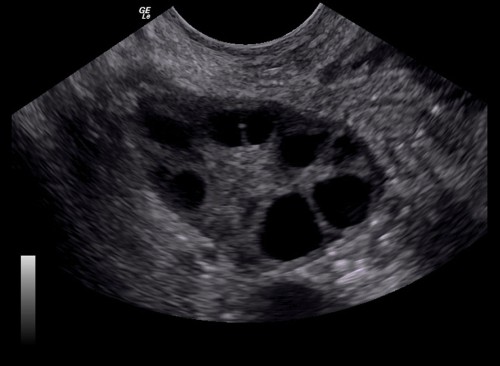
Ultrasound
Ultrasound assessment of the ovaries and the womb is one of the most important diagnostic tools available. It can provide information regarding the ovarian reserve, and also any abnormal conditions in the pelvis that might be related to infertility problems.Furthermore, additional information can be obtained regarding other conditions such as polycystic ovaries, endometriosis, hydrosalpinges, ovarian cysts, etc. Each of these may individually contribute to the chance of achieving a pregnancy.
During treatment, ultrasound assessment of the ovaries and uterus is the main way of monitoring its effectiveness. Based on these findings the drug administration protocols can be altered and individualized in order to achieve optimum results.
Recurrent Miscarriage
The term recurrent miscarriage refers to cases with three or more consecutive miscarriages and involves approximately 1% of women. In these cases it is very probable that the miscarriages are not due to a random event, but that there is an underlying factor that leads to them.The conditions that may lead to recurrent miscarriages are:
- Anatomical problems of the uterus (constructional anomalies, diaphragms,fibroids etc)
- Thrombophilias (abnormalities in the coagulation mechanisms of the blood)
- Endocrinological anomalies (diabetes, thyroid disease etc.)
- Genetic causes (numeral or structural chromosomal abnormalities of the embryos)
- Immunological factors
In approximately 50% of recurrent miscarriages a specific cause is not found. According to studies, women that fall in this category, have a 70% chance to successfully deliver a baby in a further pregnancy without any intervention.
In our unit, full investigations and consultation is offered for all recurrent miscarriages. The screening is not limited to women with 3 or more miscarriages, as examinations can take place even earlier, based on factors such as age and personal history.
In our unit, full investigations and consultation is offered for all recurrent miscarriages. The screening is not limited to women with 3 or more miscarriages, as examinations can take place even earlier, based on factors such as age and personal history.
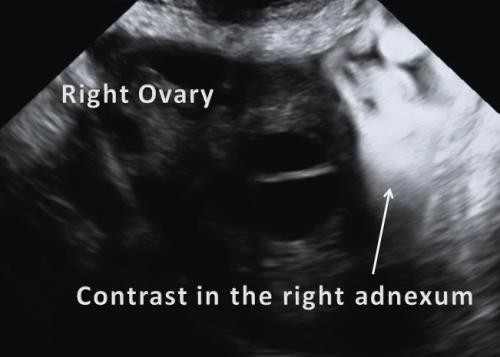
Hysterosalpingo Contrast Sonography (HyCoSy test)
It is vitally important to confirm that the structural integrity of the uterus is normal and without abnormalities such as polyps, fibroids, diaphragms etc. before starting any type of assisted reproductive treatment. These abnormalities cannot easily be detected with a conventional ultrasound scan. With the HyCoSy technique we can evaluate in detail the structure of the endometrial cavity, avoiding a hysteroscopy. During this non-invasive procedure, saline or contrast media is injected into endometrial cavity using a special catheter. This then allows us to evaluate any abnormality in the endometrial cavity using a transvaginal ultrasound probe.Using the same procedure the patency of the fallopian tubes can be examined, avoiding the necessity of a hysterosalpingogram.
Pre-conception Screening
Before the start of any type of infertility treatment it is essential that certain preliminary examinations take place to protect both mother and embryo from complications during pregnancy.Blood group + Rhesus status (Woman & Man)
Full blood count (FBC) (Woman)
HIV (Woman & Man)
Hepatitis B (Woman & Man)
Hepatitis C (Woman & Man)
VDRL (SYPHILIS) (Woman & Man)
Rubella Status (Woman)
Haemoglobin electrophoresis (Woman)
In cases of azoospermia or severe oligospermia it is recommended that the male partner undergoes a karyotype examination, a test for Cystic Fibrosis mutations and also in some cases investigation for Y chromosome microdeletions.
Further tests may be requested depending on the ethnic background of each individual.

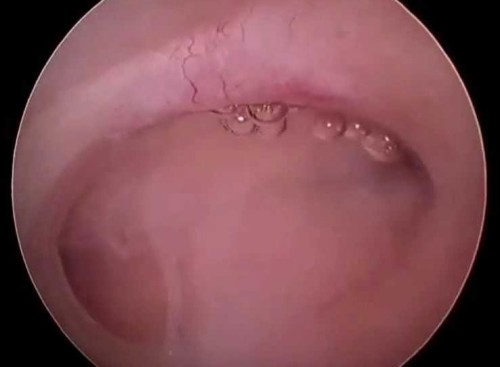
Hysteroscopy
A hysteroscopy is a procedure that involves the insertion of an endoscope (thin tube with a diameter as thick as a pencil) in the uterine cavity. This is performed through the cervix without the need for incisions.With the hysteroscopy we have the ability to explore the internal cavity of the womb for structural anomalies (diaphragm, bicornuate uterus, etc.) or for the presence of abnormal growths that distort its architecture (polyps, fibroids, adhesions).
Hysteroscopy gives us the ability to deal with any problems we detect immediately. Various surgical instruments can be inserted through the thin endoscope tube, giving an immediate solution to most problems. In the vast majority of cases hospitalisation is not necessary after the procedure. The patient returns home on the same day, without the need to refrain from normal activities in the following days.
It is widely accepted that anomalies in the architecture of the uterine cavity should be corrected surgically, as this leads to higher pregnancy rates.
Sperm Analysis and Screening
The parameters that are investigated in a sperm analysis are:Volume, Liquification, pH, Colour, Number of spermatozoa (concentration), Motility, Agglutination, Sperm morphology
If it is deemed necessary antisperm antibody testing is also investigated in cases where sperm agglutination is observed.
The recommended abstinence period prior to a sperm analysis is 2 to 5 days.
In certain cases more detailed investigations of the sperm might be required such as DNA fragmentation test which checks the oxidative damage of the sperm or chromosomal analysis of the spermatozoa.
